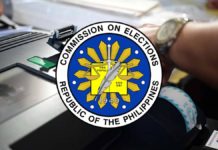
BY BAGONG ALYANSANG MAKABAYAN – PANAY
DECADES of counter-insurgency indoctrination, training and waiting for scraps from the US military have turned the Armed Forces of the Philippines into a rabid, reactionary force, always at America’s beck and call, and predisposed to committing the worst atrocities against its own people. Ironically, these “defense arrangements”, arguably the most visible facets of enduring foreign domination, gravely undermine our very security by turning the country into a pawn ready to be sacrificed for US interests.
With such realities confronting Filipinos, any meaningful celebration of Independence Day – even if only nominal – must come with a reflection on how our nation’s foreign relations and domestic policies, in truth, defeat our right to self-determination, keep us underdeveloped, saddled with debt and reliant on foreign aid. Such reflection should awaken in each of us that flame of nationalism and motivate us to advocate for a truly independent, non-aligned foreign policy, one that is premised on a non-exploitative relationship with other countries while altogether discarding the attitude of submissiveness ingrained in our current leaders.
Such nationalistic sentiments should unite the public to condemn both the incursions by China and its attacks against Filipino fishermen in the West Philippine Sea, as well as the deployment of US troops and war material all over the country. We must call for braver foreign policy positions from the administration of Ferdinand Marcos Jr., denounce militarism and provocation from both the US and China, and demand a diplomatic resolution of disputes between countries. After all, true friendship among nations can exist only through a mutual respect of each other’s sovereignty and a rejection of war as a foreign policy tool.
Unfortunately, June 12 celebrations under Marcos Jr. ‘s leadership, much like those under his predecessors, amount to nothing but lip-service to independence. Even the lavish three-year program of ceremonies commemorating the 125th year of Philippine independence, organized by an inter-agency body led by the National Historical Commission, amounted to superficial events, devoid of anything that could inspire Filipinos to act in the spirit of nationhood.
It is, rather, the determined efforts and aspirations of the Filipino masses who suffer the most from these realities and therefore wish to overcome them that give meaning to Independence Day celebrations.
It is the protests against social inequities and injustices, against government abuse and human rights violations, and against subservient foreign policies that unify the people and allow them to find their collective strength, in the same way that our revolutionary forebears found theirs in Pugad Lawin in 1896 when they declared to their Spanish oppressors and to the rest of the world that they, the Filipino people, were taking charge of their own destiny. More than a century later, it is in our organized actions, our protests and acts of defiance, and all forms of collective efforts and advocacies on the different social issues confronting us – poverty, corruption, human rights violations, and exploitation – that we contribute to the enhancement of our national consciousness.
Far from being a mere historical occurrence remembered only in official rituals and shallow pronouncements, the fight for Philippine independence is an ongoing struggle waged by people’s movements and given life with the sacrifices of those who take part in them. And if history teaches us anything, it is the fact that such a struggle will continue so long as the injustices that gave birth to it remain./PN







